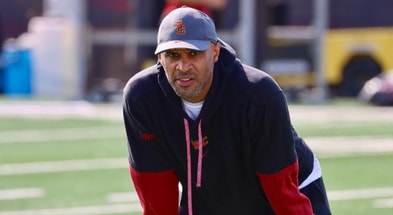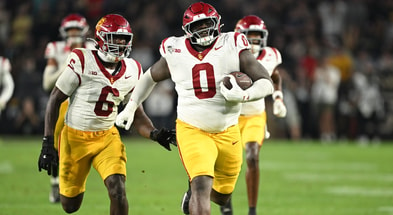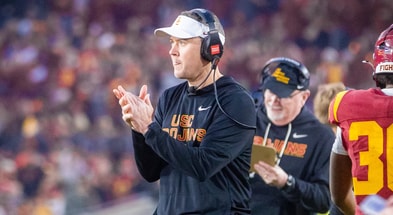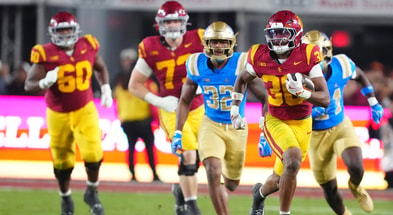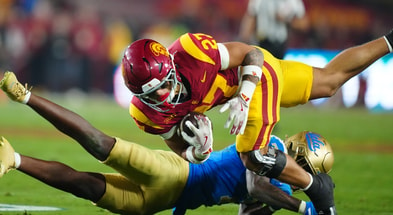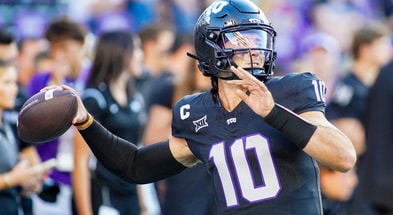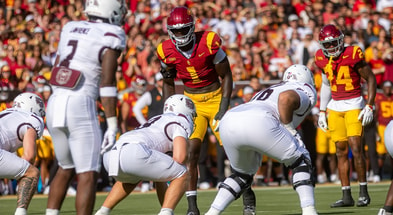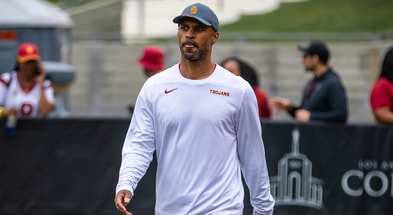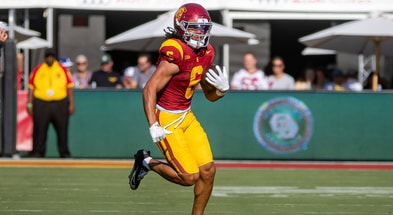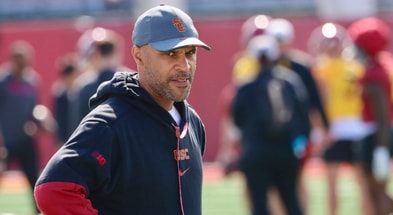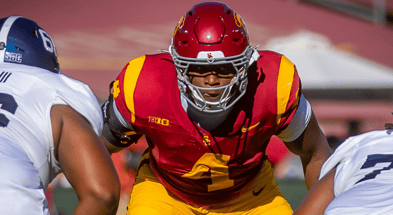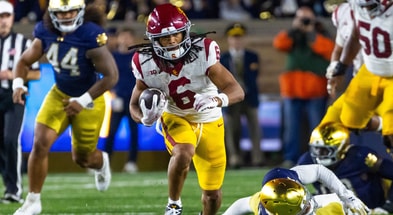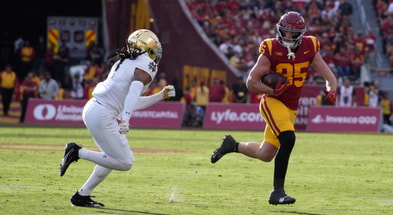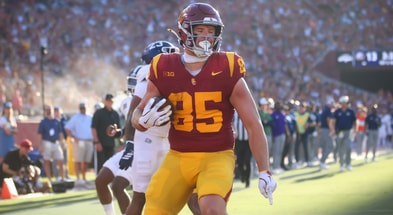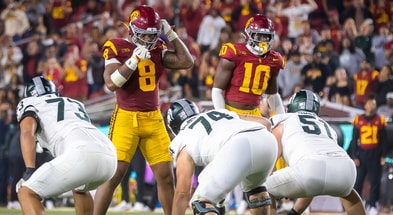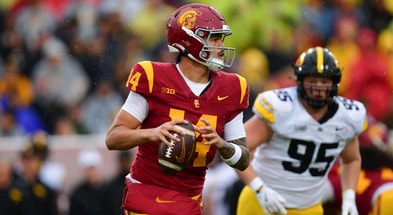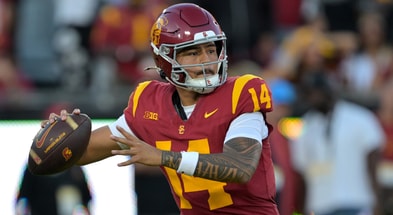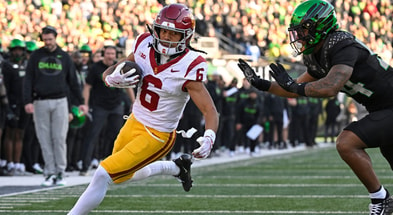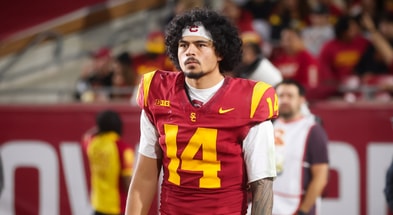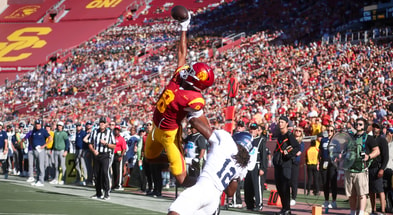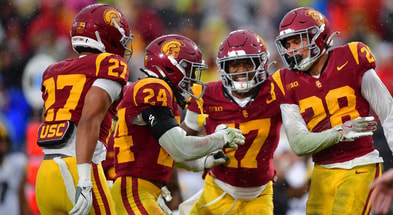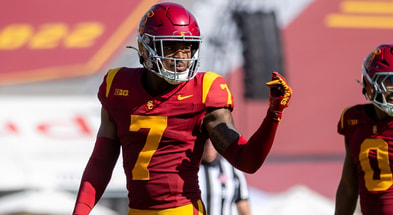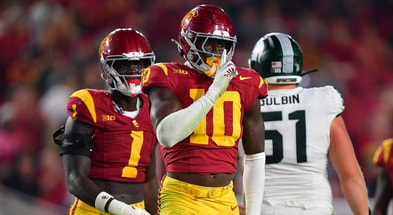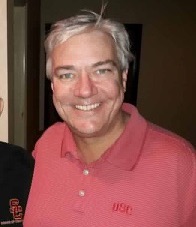Musings from Arledge: Bring NIL into the light
For years, the NCAA created a black market in player compensation because its rules were designed to ensure that the billions generated by college football would go only to coaches, schools, broadcasters, and others who don’t risk their health on the field. Free labor is fun for the guys making the money, obviously, but the players on the field were valuable, and whenever the rules prohibit market transactions in valuable goods or services, black markets pop up.
Because the NCAA is, by definition, an anti-competitive, collusive racket that is designed to limit wages, and the unfairness of the system had become far too stark—we know the toll that head injuries take on football players, and these players were being denied compensation in an industry where coaches make $12 million a year and ESPN makes hundreds of millions—so the courts stepped in and effectively destroyed the NCAA’s “amateur” system.
Everybody hates what has replaced it: non-stop free agency and bags of cash for high school kids. The current Wild West may have even driven Nick Saban into retirement. I can’t know the inner workings of Nick’s mind, but I suppose it’s possible that he misses the good old days when all you needed to do is have Tuscaloosa’s Buddy Garrity give a five-star recruit the keys to a Dodge Charger and let the local insurance salesman give some $100 handshakes. Now it costs a lot more and, remarkably, the process has become even seedier.
The fundamental problem is that the courts wanted to permit what is intrinsically fair: if Nick Saban can lend his name, image and likeness to AFLAC, why can’t Tim Tebow lend his to Christian Living magazine or Aaron Hernandez lend his to Ginsu knives? It seemed unreasonable to stop NCAA athletes from doing what every other person in America can do, which is use their looks or notoriety to peddle crap to consumers for a fee. That’s what ‘Murica is all about!
But very few college football players have real NIL value. Caleb Williams does. Tim Tebow and Reggie Bush would have. Star players in major programs all do to some extent, at least for local businesses. But that’s not what drives the NIL market. When Oregon offers a bag of cash to flip Ryan Pellum, this is not NIL; there is no value for Pellum’s name, image or likeness, because there is no business in the world that is saying in a board meeting, “If only we could get Ryan Pellum to pitch our BBQ sauce, our sales would skyrocket!”
No, what is happening is that college football programs have fans who care about the team’s success, and they are offering cash to high school kids who have no discernible value to advertising agencies or corporate America in order to bolster their rosters. It’s called NIL, but it’s not about NIL at all. The resulting distortion in the market is significant, and it’s limited to college sports, primarily college football. In the NFL, the rules governing the draft, free agency, the salary cap and revenue sharing, all make it impossible for any team to stack its roster with talent. This is why well-run franchises in smaller markets, like the Pittsburgh Steelers, can have significant long-term success in ways the Oakland A’s cannot in major league baseball, where there is more of a discrepancy between haves and have nots. But even in the MLB, the Yankees can’t sign every stud high school pitcher or college shortstop.
Most importantly, the ability to get NIL deals does not play a major role in free agency in the NFL. Patrick Mahomes does not have to leave Kansas City to chase NIL dollars; the NFL offers a platform that allows Mahomes to make roughly the same amount in KC or NY. To the extent there’s a difference, it’s not a big enough difference to give the Giants or Jets an unfair competitive advantage, which is plain enough for everybody to see. And even where geographical opportunities make some difference—LeBron to the Lakers might have been partially due to LA business opportunities—professional sports still have rules that keep the playing field more level. The Lakers, with all their built-in advantages, can still fail. That is also plain to see.
In college football, by contrast, a strong NIL program provides an overwhelming advantage. And this makes sense: because NIL deals are not related to the actual value of an individual player’s name, image, or likeness, and because there is no other source of revenue. Unlike the other professional sports, NCAA football owners—the universities—do not share revenues with the players. NIL money is all there is. So, in some cases, NIL money is all that matters.
Of course, when we talk about level playing fields and NCAA football, we should always do so with a sly grin on our faces. College football has never had anything close to a level playing field. Purdue and Indiana never had a level playing field with Ohio State and Michigan; Oregon State never had a level playing field with USC; Middle Tennessee State has never had a level playing field with Tennessee. Some universities have built-in advantages—often location, frequently a long history of success (we might call those earned, built-in advantages), and quite often money. Why can Miami become great very quickly with good coaching? Because of location. Why does Notre Dame attract athletes that Purdue does not? Because of its tradition. Why were Oregon and Oklahoma State able to rise from the bottom to become quality programs? Because each had a rich alum who cared deeply and gave generously. Even before NIL, money mattered.
The current problem with college football is not that NIL has created an uneven playing field. The problem is that the system does not serve anybody’s interests, including the players. And the NCAA—hackish clowns that they’ve always been—are only making the problem worse. Here is the current situation: NIL deals are critical to success in recruiting. But the NCAA prohibits direct involvement by the schools. So that means you have (1) actors involved who have no accountability to the schools and may not be trustworthy, and (2) schools are forced to break the rules by coordinating with collectives to the extent possible. All of this is dumb.
So what does the NCAA do? They go after Florida State. Why Florida State? Is Florida State known for dropping big bags of cash on the porches of high school players? No. FSU is notorious for having relatively little money compared to the other major programs. In fact, FSU is currently in a fight for its football future because it is stuck in a conference with a terrible TV deal that extends into the 22nd century. If you want to crack down on pay for play, why not visit Texas A&M or Oregon? But FSU’s crime was having an assistant coach involved in NIL activities. Why is that bad? Good question.
Look at it this way. Schools are already involved. Ryan Day was asking Ohio State donors to provide up to $13 million for his last recruiting class. Matt Rhule told donors that a top QB costs $1-2 million. (He then landed a top QB. Happy coincidence.) Schools are already involved in raising money. They have to be. This is why one recent article on the FSU investigation quotes an unnamed, exasperated source saying, “It’s ridiculous. You might as well just punish everyone. Nobody is innocent and you can’t allow your program to fall years behind.”
Indeed. You can’t compete if you’re not successful in procuring NIL deals for your players. So you must do that. But the NCAA says you can’t directly do that. Which means the NCAA’s approach to the problem is the dumbest approach possible. Which is exactly what we should expect from the organization that gave free rein to someone like Paul Dee.
Top 10
- 1Breaking
Auburn QB
To enter Transfer Portal
- 2New
Marcus Freeman
Top candidate for NFL job
- 3Hot
Transfer Portal
Latest intel on top CFB targets
- 4
Pete Golding
Ole Miss makes history in CFP win
- 5
Lane Kiffin gets bonus
LSU pays for Ole Miss win
Get the Daily On3 Newsletter in your inbox every morning
By clicking "Subscribe to Newsletter", I agree to On3's Privacy Notice, Terms, and use of my personal information described therein.
I have a better idea: force the schools to be involved by making the schools accountable. If a player is offered an NIL deal to play for a school, that deal must be made public, and the university must stand behind it. Non-public deals can make a player ineligible. Deals that are not paid can make the program susceptible to sanctions. So if somebody, for example, is stupid enough to offer Jaden Rashada $13 million to play for Florida, and if that person then reneges, Florida is responsible for paying the money. Rashada can send his already public deal to the governing body of the sport, which then sends an invoice to the Florida athletic department. They pay or they forfeit wins and scholarships.
Want to cut down on sharp business practices and fraud? Want to get rid of questionable contracts on impressionable kids from bad neighborhoods and poor families? Get the universities more involved, and put them on the hook.
Every NIL deal should be public. Every university should be responsible for its donors and NIL collectives. Give the universities an incentive to police what’s going on. Make them responsible for keeping the shady supporters away from their players. Shine a light on what’s going on and allow the transparency to reap its benefits.
But don’t allow the NCAA to police this. First, the NCAA is corrupt and stupid. They’ve never been competent, and they’ve never been honest brokers. We’re supposed to trust the group that let Paul Dee destroy USC while ignoring that Auburn paid huge dollars for Cam Newton? We’re supposed to trust the body that stands in the way of Reggie Bush having his Heisman Trophy even though every single former Heisman winner on that New York stage in December got some amount of impermissible benefits? What a joke. Having the NCAA enforce the rules is like relying on a corrupt, third-world police force to uphold the rule of law. It’s immoral, it’s dumb, and the resulting failure is foreseeable from the beginning. Second, the NCAA can’t enforce rules, at least not as a practical matter. The first school or player that sues the NCAA and claims it is involved in collusion in violation of federal anti-monopoly laws, the NCAA will fold. That’s the reality. The Supreme Court has already tipped its hand.
Rules that make sense can only come through federal legislation or collective bargaining. Congress is a swamp of idiots and attention whores who can’t accomplish much of anything. Forget them. Universities may not want to do it, but they’re going to have to make the players employees and engage in collective bargaining if they want enforceable rules that make sense. As part of that collective bargaining, they’re going to have to give up a big chunk of their revenues. That’s why they don’t want to do it. That and it will be bad for field hockey teams across the country, since every minor sport at every D-1 school relies on excess football revenues to pay for their uniforms and buses. But it’s not clear why guys generating millions of dollars and risking head injuries in the process should be denied a fair share of the revenues they generate to pay for sports that nobody watches. Even if politically correct academics don’t like it. But let’s be honest, very few academics understand or care about markets. If the world were left to academics, every economy would look like North Korea’s.
The other benefit to revenue sharing with players is that NIL dollars are not going to be the only source of compensation for players, which means that NIL packages immediately become less important. That’s good.
And limit free agency. Allow one free transfer per player prior to graduation, allow an extra transfer if a coach leaves, and allow grad transfers. Make the transfer window after spring practice and make it only once per year. Then schools won’t be in a position where they have to compete with NIL packages from every other university in the country multiple times a year, every year, for every player.
My proposed reforms would not create a level playing field. The schools with rich supporters will still be able to offer better deals. But so what? There has never been a level playing field in college football. The goal should be transparency, to cut down on fraud and dishonesty, and enforceable rules, so schools are not forced either to cheat or get left behind.
And, oh yeah, relegate Oregon to the FCS. That will help, too.
